It’s Great British Beach Clean week and to celebrate we joined volunteers down at Aberdeen Beach for a slightly different sort of litter pick.
Instead of gathering as much rubbish as we could, as fast as we could, this beach clean focused instead on what kind of rubbish we picked up.
From plastic bags and bottle tops to fishing rope and face masks, the beach cleaners recorded every scrap of litter collected for the Marine Conservation Society’s (MCS) annual UK-wide survey.
Why bother counting what is left lying on beaches?
By knowing what – as well as how much – litter is polluting our coastline the MCS can use the data collected to campaign for real-life policy changes.
This includes the likes of the plastic bag charge which was introduced in Scotland in 2015 to reduce the number of bags ending up on beaches, rivers and in landfill.
“The plastic bag policy has been a real success story,” said Iain House, organiser of the 2022 Aberdeen beach clean.
Data from MCS beach cleans shows plastic bags are becoming less commonplace on beaches, from a high of 13 bags per 100m of beach on average in 2013, down to just three in 2021.
Iain carries out four cleans a year down at Aberdeen Beach for the MCS but says the September Great British Beach Clean event is particularly important, not just to highlight successes but also to figure out where energy should be directed next.
“Covid-related PPE is something we are seeing more and more of, to the point where it now has its own category on the list we use to record common items,” Iain said.
“Although plastic is what we see the most of, there are definitely trends in the rubbish.”
How does the beach clean work?
Iain himself has been a volunteer with the MCS for 19 years and has been personally recording the data gathered at Aberdeen Beach all that time.
“My wife and I were scuba divers for 20 years until an injury meant I had to stop,” he said.
“I thought that beach cleaning would be a good way of giving back a little bit and helping to look after the sea.”
With records dating back to 2003, Iain’s beach cleans are among the longest continuous beach clean events in the country, which makes the data particularly valuable.
Each year in September volunteers arrive to carry out different roles in the clean – some are litter picking and others are recording what the pickers find.
“It takes a bit longer than a typical clean but no matter how many people we have, the volunteers are dedicated and will get everything,” Iain said.
“We’ve got about 45 people here today which is a good turn out and we split them into groups across the beach to make sure we cover the right areas.”
A birthday beach clean
One of those dedicated volunteers was Ceilidh Ewan who was spending her birthday at the beach picking litter.
While most people might be eating cake or knocking back a couple of drinks, Ceilidh didn’t want to miss the Great British Beach Clean event just to blow out a few candles.
“My boyfriend asked me what I wanted to do for my birthday and this is what I decided,” she said.
“I’ve been coming and doing beach cleans here for five years.
“I walk my dog here, I swim in the sea here… So I want to do my bit. I just hate to think of fish and seabirds with their stomachs full of plastic.”
Great British Beach Clean events are happening across the north and north-east over the next few days, so if you’re feeling inspired there is still time to take part.
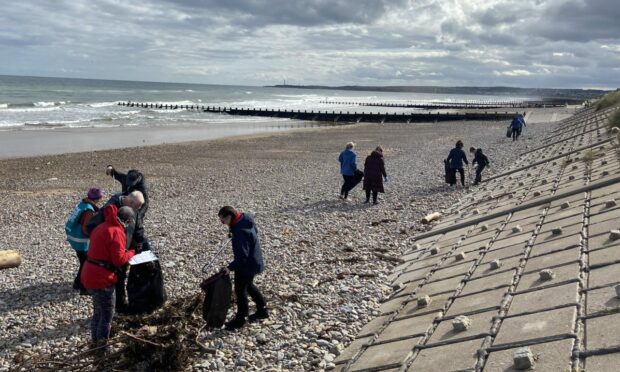
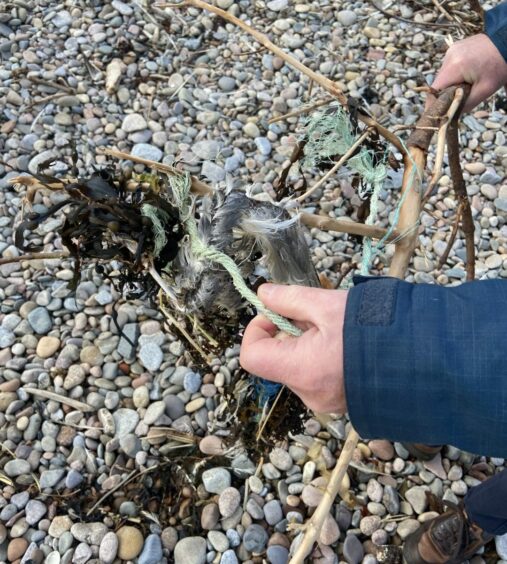
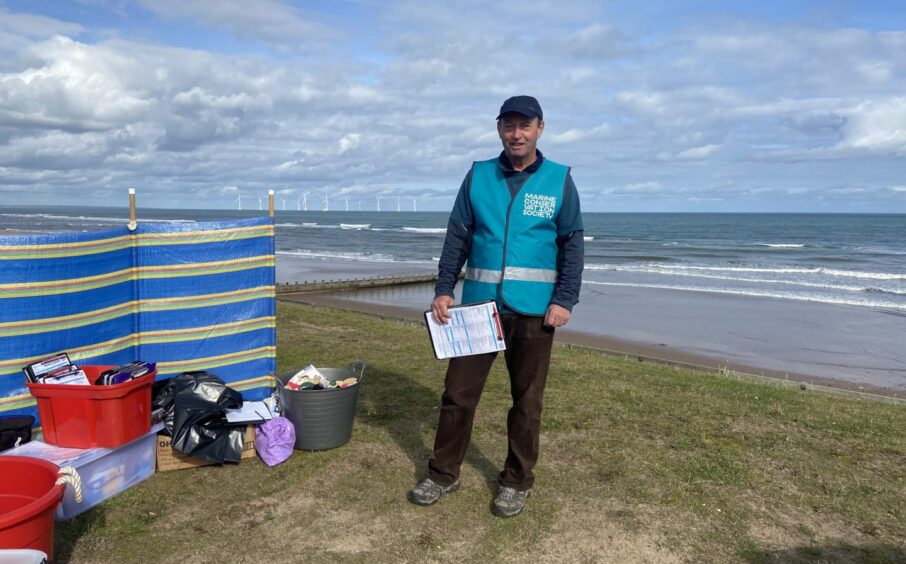
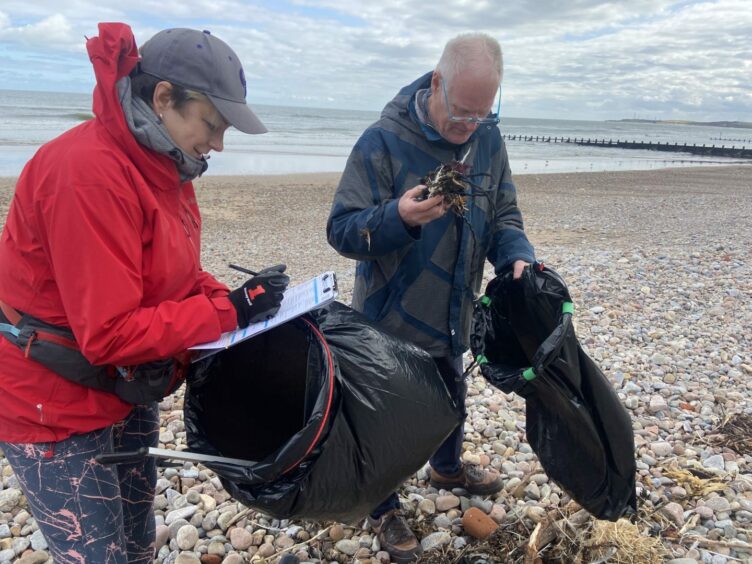
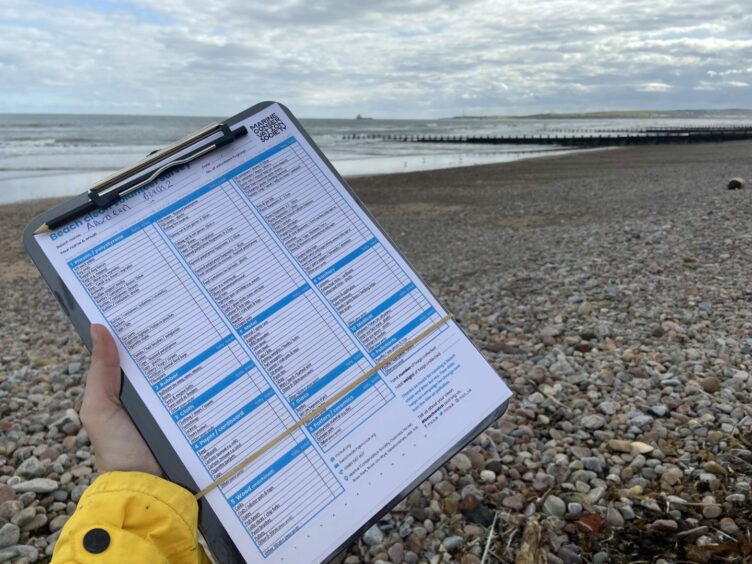
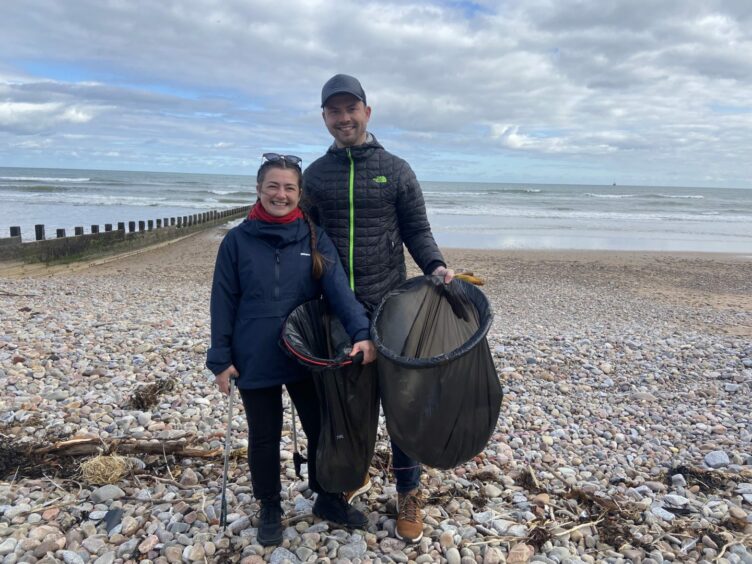
Conversation